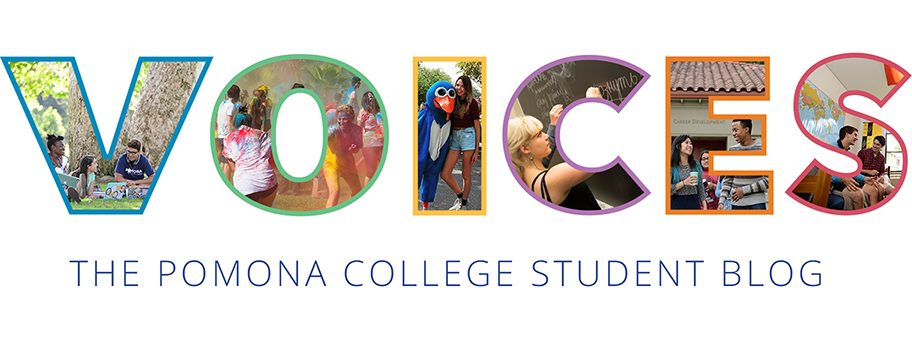Are you compulsive about planning? Congrats, here’s another item for your list: “Studio Time”
1) A cozy café. A notepad. A pen. Plain A4 papers. Watercolor paints. Fresh cooking ingredients. A half-empty sheet music to be completed by no one other than yourself…
2) Problem sets. Research papers. Midterm exam. Presentations. Grad school applications. The MCAT. Job interviews…
As students, we constantly find ourselves caught in between the two sometimes conflicting sets of things that we would like to do. We are young, creative, full of energy and passion. We want to explore the world in our own ways, dream wildly, and leave an unique mark everywhere we go.
Yet, is this dreaming realistically? Aren’t our real lives filled with Reality… Doesn’t reality mean the long, apparently never-ending list of to-do items for the week to come? Why spend your time working on a creative writing piece that you don’t even know will get published somewhere and dreaming about life as a bestselling author in the Faraway FutureLand, when you know that a certain standardized test may get you an extremely high-paying job and a great sense of stability/security in 3-5 years?
As renowned primatologist and conservationist Dr. Jane Goodall suggests, every individual makes a difference. But how? Would the latter be a more direct approach than the former, where the level of risk may be higher?
Like many Pomona students, I’ve been somewhat of a perfectionist who is quite compulsive about planning, from day-to-day homework, meetings, extracurriculars, and events schedule to longer-term research projects. Even the process of planning in itself can take up a great deal of time.
To what end? We may constantly ask ourselves, to what end?. On the one hand, the sheer business of our daily schedules can seem frightening, and deviating from our routines and plans can cause frustration and uneasiness. On the other hand, it feels super rewarding to check our to-do lists.
Surely, we like to measure success by “products” — somewhat inevitably so: who wouldn’t like to see a nice stack of high-quality, double-spaced papers for all which you proudly claim authorship? To achieve these goals, forward planning is often necessary. Despite all the potential tradeoffs involved, it may be mentally difficult to reduce the level of planning for those of us who are addicted to this idea, perhaps for a similar reason why some people just can’t help but to overstudy, flipping through study materials over and over again although you may be sure that you already know them by heart.
Instead of arguing us to change our habits radically, I advocate for what is upon first glance quite the opposite: inserting another to-do item.
It was on another one of those busy days packed with iCal items that writer, artist, and teacher Amy Whitaker spoke at the Athenaeum about “art thinking, or inventing Point B in any area of life,” an idea that she discusses in length in her book Art Thinking: How to Carve Out Creative Space in a World of Schedules, Budgets, and Bosses.
While her book partly focuses on how creative individuals bring their ideas into the business world, I have found some of Whitaker (a Williams College graduate)’s suggestions extremely relevant to us as liberal arts college students. In particular, the idea of an one-hour “studio time” every day is particularly appealing to me.
There is not a precise definition of “studio time” — it can be anything from creative writing (e.g. for “Writing for Performance”, a great class that you should take with Prof. Art Horowitz!) to composing a song, to simply doing some sports. Maybe one way to see it is considering it “me time” when we can let everything else go, and simply think about what we’d like to think about, and pursue whatever we want to pursue.
An hour a day may sound like an awful lot of time when your schedule is literally packed with back-to-back items all day, but the benefits may outweigh the costs. For one, this may allow you to work incrementally on a large-scale, ambitious project.
It can be intimidating to think about publishing a book while being a full-time student or working a day job, but having time set aside daily will allow us to accomplish our goals. Further, although we cannot always gauge the outcomes of our “studio time” precisely, we may likely feel more positive about everything else in life.
We say that the week back from spring break brings us back to reality. Fair enough. After all, finals are coming up in just over a month, and it’s also the time of the year to finalize summer/post-graduation plans and think ahead about the types of opportunities we may be applying for in the fall. Indeed, this not-so-healthy stressful mentality has started way back, and arguably, it never really ends.
Inserting “studio time” for ourselves will be beneficial for us to reflect about the larger picture, and to allow our creative side to preside over our more rule-dictated, schedule-obsessed selves. So, if you are a control-freak about planning, I invite you to join me in exploring this daring new item and the brave new world it may well open up to us. Bon voyage, and good luck.

